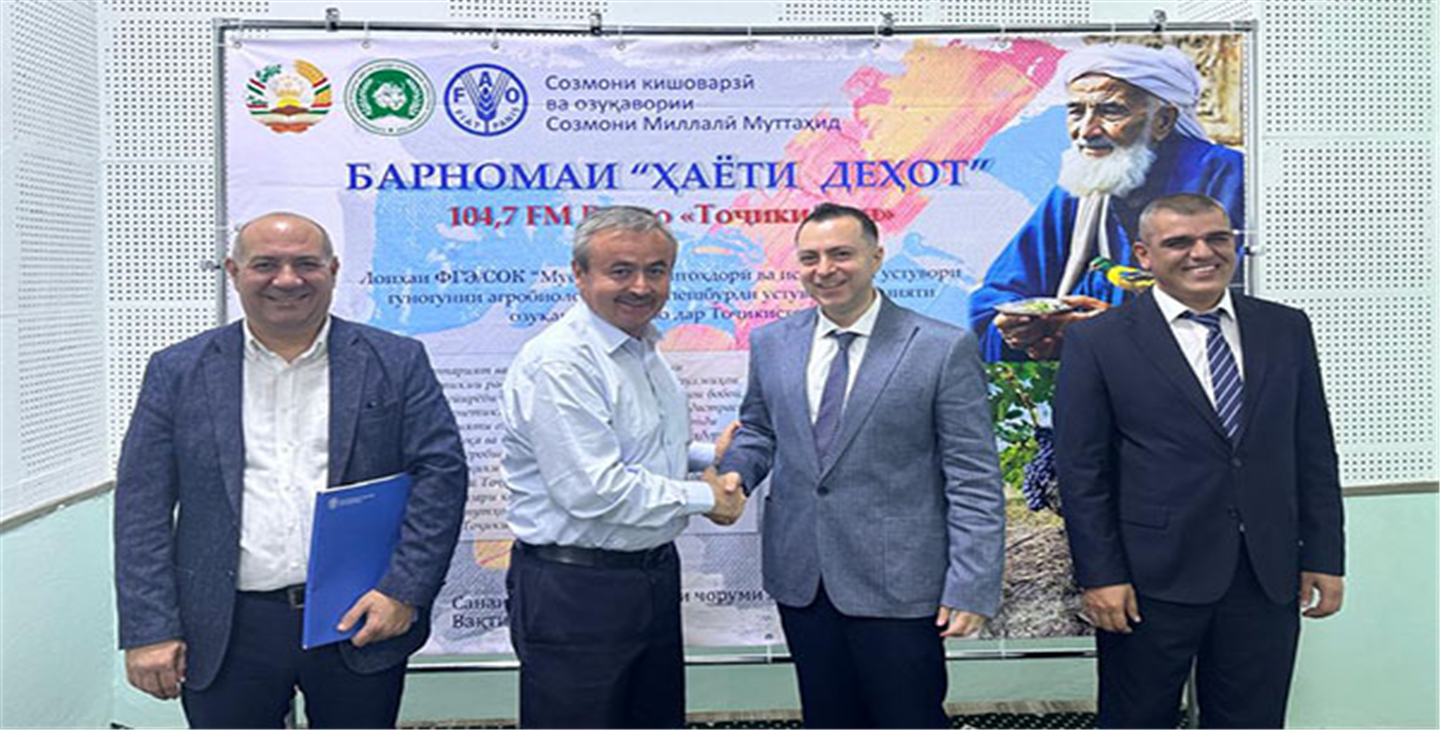In a special edition of the radio program "Rural Life”, FAO advocates for preserving local biodiversity
- 9/14/2024 12:48:30 PM
- Views

Tajikistan is considered one of the centers of origin and diversity for several crop species of cereals, fodders, legumes and fruit. Unfortunately, in recent decades, the introduction of enhanced varietals in wheat, rice, cotton and vegetables has resulted in significant loss of agricultural biodiversity. Moreover, disturbance due to human activity such as expropriation of land, construction of roads and infrastructure facilities, and increase of population as well as a lack of knowledge of current natural resource conservation techniques have compounded the loss of biodiversity.
The Acting Representative of the Food and Agriculture Organization of the United Nations (FAO) in Tajikistan Aghasi Harutyunyan spoke with the programme team of Radio Tajikistan on 28 August. During the conversation, they discussed the importance of preserving local agrobiodiversity, the high value of local genetic resources for both agriculture and food security at national and global levels, and, most importantly, the impact of climate change on the state of plant genetic resources.
The meeting launched a series of radio programmes dedicated to the conservation and sustainable use of agrobiodiversity. Special editions of the programme "Rural Life" are broadcast monthly on 104.7 FM of Radio Tajikistan. This initiative will continue until the end of this year to increase public understanding of the importance of protecting, preserving and sustainably using local agrobiodiversity species for both food security and nutrition.
The initiative was made possible with the support of the project “Facilitating agrobiodiversity conservation and sustainable use to promote food and nutritional resilience in Tajikistan”, which is being implemented by the National Center on Environmental Protection Actions of the Republic of Tajikistan (NCEPA) in cooperation with FAO and with financial support from the Global Environment Facility (GEF).
The project aims to foster knowledge in the public about, and promote cultural aspects of, traditional agro-ecosystems of Tajikistan and cultivate the existent potential in farms and private households in relation to local species of agrobiodiversity that represent valuable genetic material for breeding and production in various sectors of the economy.
At the same time, as Harutyunyan noted, in the context of climate change, already vulnerable ecosystems and wild plant species, which serve as a source of highly adaptive genetic material, are experiencing high stress, which leads to gradual degradation and extinction. He also stressed that issues related to the impact of climate change on the quality of agricultural ecosystems and the associated implications for food security are a priority in determining the goals and objectives of initiatives implemented by FAO.
The FAO–GEF project supports the establishment of local seed banks to store and distribute seeds of local agrobiodiversity species important for sustainable agricultural development and conservation. In addition, technical and advisory assistance is provided to targeted dehkan and private farms on sustainable land management and on how to establish orchards, nurseries.



